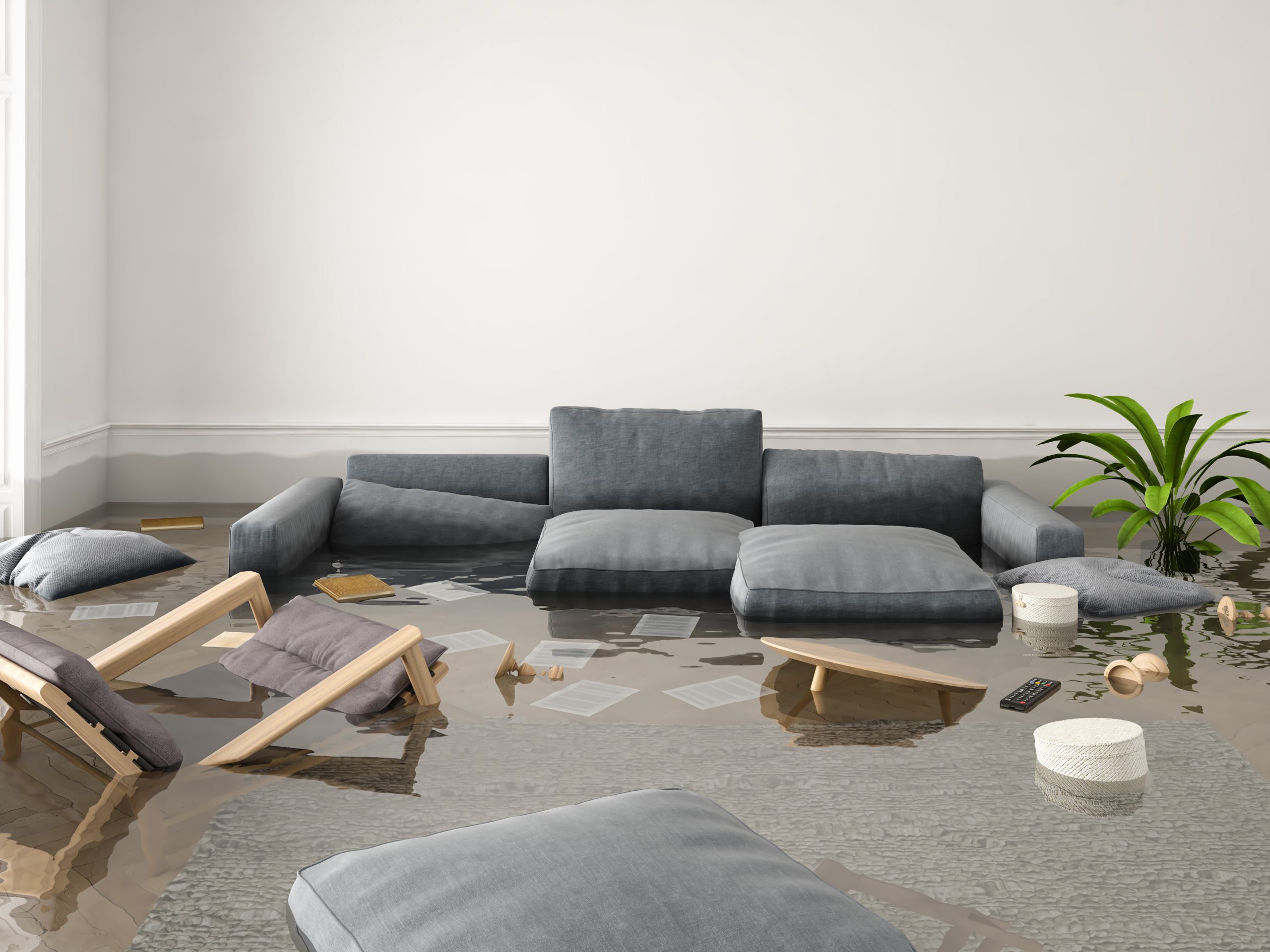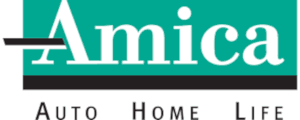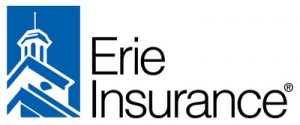Best Flood Insurance Companies

Free Home Insurance Comparison
Compare Quotes From Top Companies and Save
Secured with SHA-256 Encryption
Kristen Gryglik
Licensed Insurance Agent
Kristen is a licensed insurance agent working in the greater Boston area. She has over 20 years of experience counseling individuals and businesses on which insurance policies best fit their needs and budgets. She knows everyone has their own unique needs and circumstances, and she is passionate about counseling others on which policy is right for them. Licensed in Massachusetts, New Hampshire,...
Licensed Insurance Agent
UPDATED: Mar 21, 2024
It’s all about you. We want to help you make the right coverage choices.
Advertiser Disclosure: We strive to help you make confident insurance decisions. Comparison shopping should be easy. We are not affiliated with any one insurance provider and cannot guarantee quotes from any single provider.
Our insurance industry partnerships don’t influence our content. Our opinions are our own. To compare quotes from many different insurance companies please enter your ZIP code on this page to use the free quote tool. The more quotes you compare, the more chances to save.
Editorial Guidelines: We are a free online resource for anyone interested in learning more about insurance. Our goal is to be an objective, third-party resource for everything insurance related. We update our site regularly, and all content is reviewed by insurance experts.
UPDATED: Mar 21, 2024
It’s all about you. We want to help you make the right coverage choices.
Advertiser Disclosure: We strive to help you make confident insurance decisions. Comparison shopping should be easy. We are not affiliated with any one insurance provider and cannot guarantee quotes from any single provider.
Our insurance industry partnerships don’t influence our content. Our opinions are our own. To compare quotes from many different insurance companies please enter your ZIP code on this page to use the free quote tool. The more quotes you compare, the more chances to save.
On This Page
Flooding can occur in every region of the US, which is why every renter or homeowner should consider purchasing a flood insurance policy.
There’s a good chance that your home will experience water damage at some point.
In fact, 90 percent of natural disasters involve some kind of flooding, so you’ll want to be financially protected from water damage when disaster strikes your home.
It’s important to note that standard homeowners insurance policies, while they might cover specific water damages, don’t cover damages related to flooding.
Instead, your homeowners insurance will only cover water damage related to smaller issues like leaking pipes, broken laundry hoses, and toilet overflows.
If you want to fully protect your home from major flooding, you’ll need an entirely separate policy for flood insurance.
7 Best Flood Insurance Companies
Here are the 7 best flood insurance companies of 2020:
- Best Car Insurance Companies
State Farm
State Farm offers all kinds of insurance services. They make it easy to get a quote or find an agent by entering your zip code and a few other pieces of information.
Once you’re a policyholder with State Farm, you can file claims, pay bills, and speak with representatives directly on the website.
State Farm offers flood insurance privately and through the NFIP, with a long list of covered items. They mention that their policies will take 30 days to be active, so if you want protection, it’s worth purchasing a policy from them quickly.
Rather than listing out features that set their flood insurance plans apart from the rest, State Farm focuses on providing their insights for first-time policy buyers.
They have several blog posts that give advice on how to reduce the likelihood of having to file a flood insurance claim in the first place. For example, they have a blog about how to properly deal with snow piling up on your roof.
Allstate

Allstate offers all types of insurance products, with a heavy focus on auto insurance. Getting a quote is as easy as entering several pieces of personal information, such as your zip code.
There’s also plenty of additional resources on their website, such as blogs and case studies, to help you better understand flood insurance.
Allstate definitely offers flood insurance through the NFIP, with typical levels of coverage, but it’s unclear whether they have private plans as well. To find out more, you’ll have to get in contact with an agent.
Farmers Insurance

Farmers Insurance offers a variety of different insurance services. You can get a quote by following the prompt on their website, which starts by entering your zip code.
You can also contact a representative or a local agent by calling their customer service number.
Farmers offers flood insurance coverage for homes with high-risk and low-to-moderate risk as well. They can provide you with an NFIP plan or a private one, depending on the level of coverage you desire or where your home is located.
They also have information about maximum coverage available on the website. For example, with an NFIP plan for a residential building, the maximum coverage limit is $250,000. It’s important to note that this doesn’t include contents inside the building, which has a max of $100,000.
Amica

Amica offers all kinds of insurance products. They make it easy to get a quote by choosing the state you live in and entering a few other pieces of information.
You can also call their customer service number to speak with a representative if you have questions.
Amica provides basic facts about flood insurance on their website. Though, they don’t go into specific details about their coverage.
To learn more about the levels of coverage and pricing you can expect with a policy from Amica, you’ll have to connect with an agent.
Erie

Erie offers a wide range of insurance services. You can get a quote on their website or find a local agent by simply entering your zip code.
Erie offers plans through the NFIP. For those who need supplemental coverage, Erie has private plans as well.
You can get coverage for anything that’s normally included in a flood insurance policy, as well as coverage for debris removal services.
QBE Insurance

QBE Insurance, Queensland Bankers Equity, offers flood insurance coverage for both residential and business properties.
They have plans available through the NFIP, so coverage is backed by the US government, and the policies adhere to all FEMA standards.
Like most companies, their policies will protect you from flooding damage associated with hurricanes, heavy rains, and tropical storms.
QBE has a program called “Write your own,” which allows you to create your own customized flood insurance policy.
They work with NFIP-certified claims professionals, who have over a hundred years of experience handling flood insurance claims.
UPC Insurance

UPC Insurance, United Property & Casualty Insurance Company, offers flood insurance through the NFIP, but they have private flood insurance plans as well.
For their NFIP policies, you can have up to $250,000 worth of coverage per structure. If you need more coverage than that, you can add on a supplemental policy called “Excess flood,” which allows you to file claims up to $5 million.
As far as their private plans go, they have standard options, known as “Flood Zone A,” which are designed for homes in high-risk areas, and preferred options, known as “Flood Zones B, C, and X,” which cover homes in less-risky areas.
Unsurprisingly, the latter comes with less coverage and cheaper premiums.
UPC only offers flood insurance in 11 states. These are all listed on the website, so make sure your residence qualifies before moving forward with a quote.
UPC’s biggest incentive is the wide range of options they have for flood insurance. As long as they operate in your state, you should be able to find a policy that fits your needs with UPC.
To learn more about discount opportunities and other incentives, you can contact a representative by calling the customer service number provided for your specific state.
Enter your ZIP code below to view companies that have cheap insurance rates.
Secured with SHA-256 Encryption
How We Chose The Best Flood Insurance Companies
Once you’ve established that you need flood insurance and have a basic understanding of it, it’s time to choose an insurer. But if you’re trying to get the best coverage for the cheapest price, it might take a while to settle on a provider, as there are hundreds of flood insurance companies out there, and they’re all claiming to be the best.
That’s why we put together this guide, which includes seven of the top flood insurance companies on the market today. But how do we know these companies are the best? Well, we focus on several key characteristics when judging the quality of an insurer’s services. Here’s a breakdown of each characteristic and why they’re important:
Financial Stability
The financial stability of a flood insurance company helps us predict how reliable they’ll be when disaster strikes. For companies that provide plans through FEMA, this is not as much of a concern, since they have financial backing from the government.
For private policies, though, financial stability is imperative. If your insurer doesn’t have enough money to pay for your covered losses, you could be stuck waiting months for a claim to be resolved. We can judge the financial stability of an insurer by looking at the reviews they receive from trusted financial agencies like Standard & Poor’s, Moody’s, and AM Best.
Reputation
The reputation of a flood insurance company helps us understand the relationship they have with current and previous customers. You want to make sure that your insurer has a great customer service team, so that you can get answers to questions when you need them as well as guidance when filing a claim for the first time.
Coverage Options
The coverage options and policies play a big role as well. What levels of coverage do they offer? Can you customize your own policy? What restrictions or limitations do their policies have? This information can usually be found on the company’s website. Though, sometimes you have to get in contact with a representative to get the full story.
What is Flood Insurance?
Flood insurance provides financial protection for flood-related damages to dwellings.
The main difference between this and homeowners’ insurance is that it focuses on water damage resulting from natural disasters, not building or maintenance issues.
What Does Flood Insurance Cover?
Some of the more common natural disasters covered in a flood insurance policy include severe rainstorms, broken dams, tropical cyclones, mudslides, and sinkholes.
Unlike other types of insurance, most flood insurance is administered through the Federal Emergency Management Agency (FEMA). This government entity helps insurance companies issue flood insurance policies, with financial backing from congress. In order to be eligible for a flood insurance policy through FEMA, you’ll have to live in a community that participates in the National Flood Insurance Program (NFIP). This program helps pay for coverage in regions that are specifically at risk of flooding. It’s easy to find out if your community is included in the NFIP by doing an online search or connecting with any flood insurance agent.
Cooperation from the government is required to keep the flood insurance market healthy, since flooding damage can be extremely costly, especially if you live in high risk areas like Florida or Texas. According to FEMA, even just one inch of water can result in considerable damage to your home.
If your home gets caught in the path of a flash flood, here’s some specific coverage you can expect to have with a standard flood insurance policy:
- Essential home systems, such as your electrical wiring, air conditioners, water heaters, heat pumps, furnaces, and solar energy equipment.
- Appliances, such as refrigerators, dishwashers, washing machines, and dryers.
- Window treatments, such as blinds and curtains.
- Carpeting, including both permanent rugs or ones that you lay over wood flooring.
- Personal property, such as clothes and electronic devices.
- Certain valuables, such as pieces of art, jewelry, or musical instruments.
- Panellings and wallboards.
- Bookcases and cabinets.
If any of these residential features are damaged due to flooding, your insurer will help cover the cost of replacing or repairing them. It’s also important to note that if you want a more specific coverage plan, most insurers will allow you to customize your own policy.
What Flood Insurance Does Not Cover
Here are some things that won’t be covered in a typical flood insurance policy, but can be added on with a customized policy:
- Anything with damage caused by mold or movements of the earth.
- Additional living expenses, such as hotel bills that you accrue while your home is being repaired.
- Financial losses due to interruption of business, which may occur if you’re covering a workplace structure, or if you just work from home.
- Valuable papers, such as cash, checks, stock certificates, and social security cards.
- Property outside of the covered structure, such as swimming pools, decks, or fences.
- Vehicles, such as your personal car, as well as any belongings inside them.
Read more:
- 8 Critical Facts to Know About Buying Homeowners Insurance Today
- Does Homeowners Insurance Cover Mold? – Everything You Need to Know
How Much Does Flood Insurance Cost?
As with all types of insurance, there isn’t a consistent price across all flood insurance policies. The cost of your monthly premiums will depend on many different factors. However, to provide some market insight, the average cost of flood insurance in the US is $700 per year, or $58 per month.
The most important factor when it comes to pricing your policy will be the area that you live in. Obviously, if you live in a floodplain (an area of land adjacent to a river or stream), such as San Marcos, Texas, or Kissimmee, Florida, you’re monthly premiums are going to be on the higher end of the spectrum.
Also, the type of policy you go with will play a big role, as there are two main avenues when choosing a flood insurance policy. You can buy it directly from FEMA, or you can go with a private company. In most cases, private companies offer more extensive coverage than regular FEMA plans, so they’re more expensive.
Enter your ZIP code below to view companies that have cheap insurance rates.
Secured with SHA-256 Encryption
Should You Purchase Flood Insurance?
Remember, damage caused by flooding won’t be covered in your homeowners insurance policy. So to financially protect yourself from severe water damage, consider purchasing a flood insurance policy from one of these providers, especially if you live in a high-risk area.
Also, keep in mind that flood insurance coverage will not be active for the first 30 days of your policy. So if your home is damaged by a severe rainstorm 29 days after purchasing a plan, you still won’t have financial protection. That’s why it’s better to obtain a policy sooner rather than later.
The only way to choose the perfect flood insurance policy is by first understanding how risky your location is, and then doing research into different companies. Using this guide as a starting point, you can begin the process of receiving quotes and comparing different options.
Once you find a good fit, you can purchase a policy (or potentially bundle it with another policy), start paying monthly premiums, and sleep easier at night, knowing that your property and belongings are financially protected against the threat of a natural disaster.
Enter your ZIP code below to view companies that have cheap insurance rates.
Secured with SHA-256 Encryption
Kristen Gryglik
Licensed Insurance Agent
Kristen is a licensed insurance agent working in the greater Boston area. She has over 20 years of experience counseling individuals and businesses on which insurance policies best fit their needs and budgets. She knows everyone has their own unique needs and circumstances, and she is passionate about counseling others on which policy is right for them. Licensed in Massachusetts, New Hampshire,...
Licensed Insurance Agent
Editorial Guidelines: We are a free online resource for anyone interested in learning more about insurance. Our goal is to be an objective, third-party resource for everything insurance related. We update our site regularly, and all content is reviewed by insurance experts.

